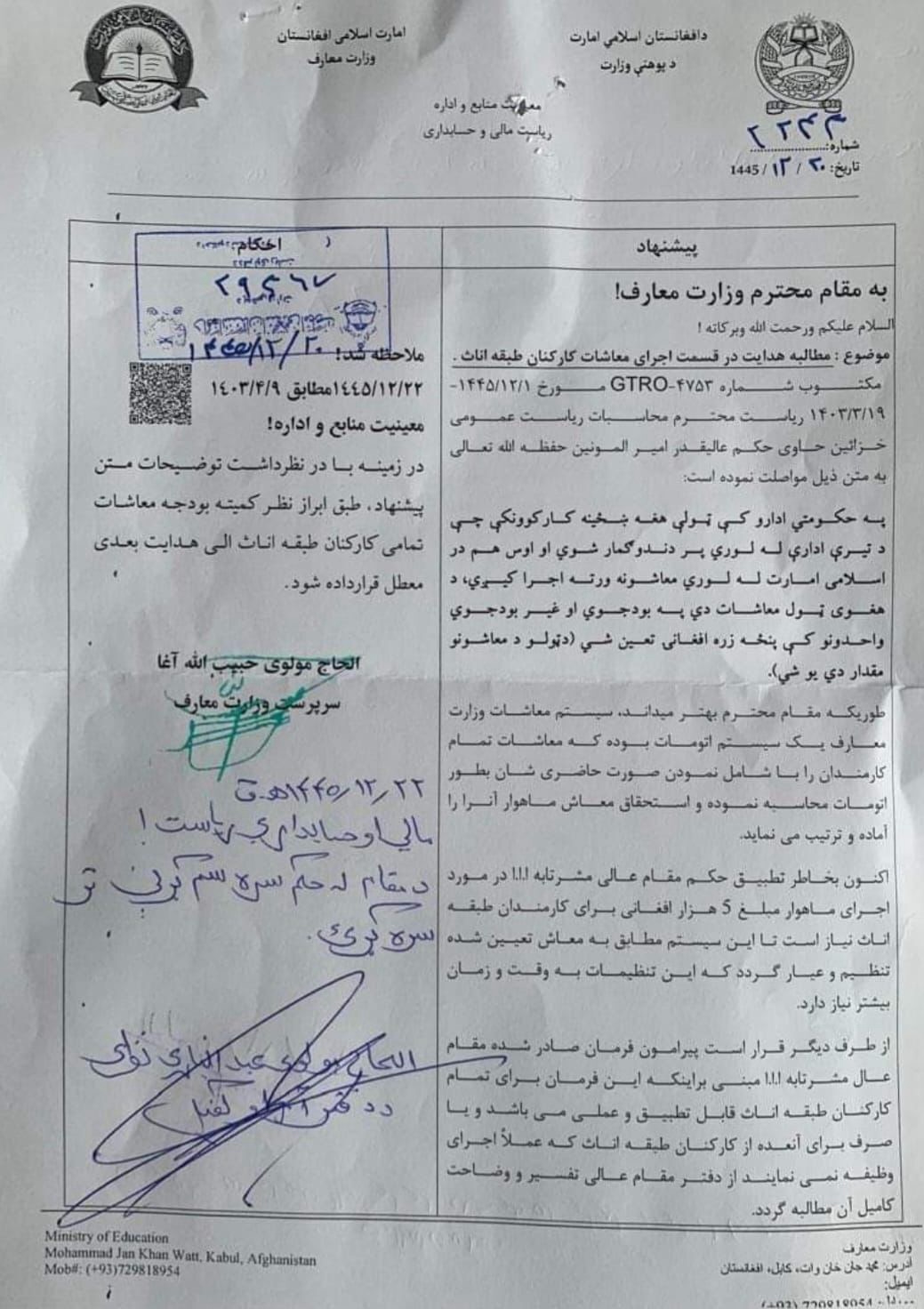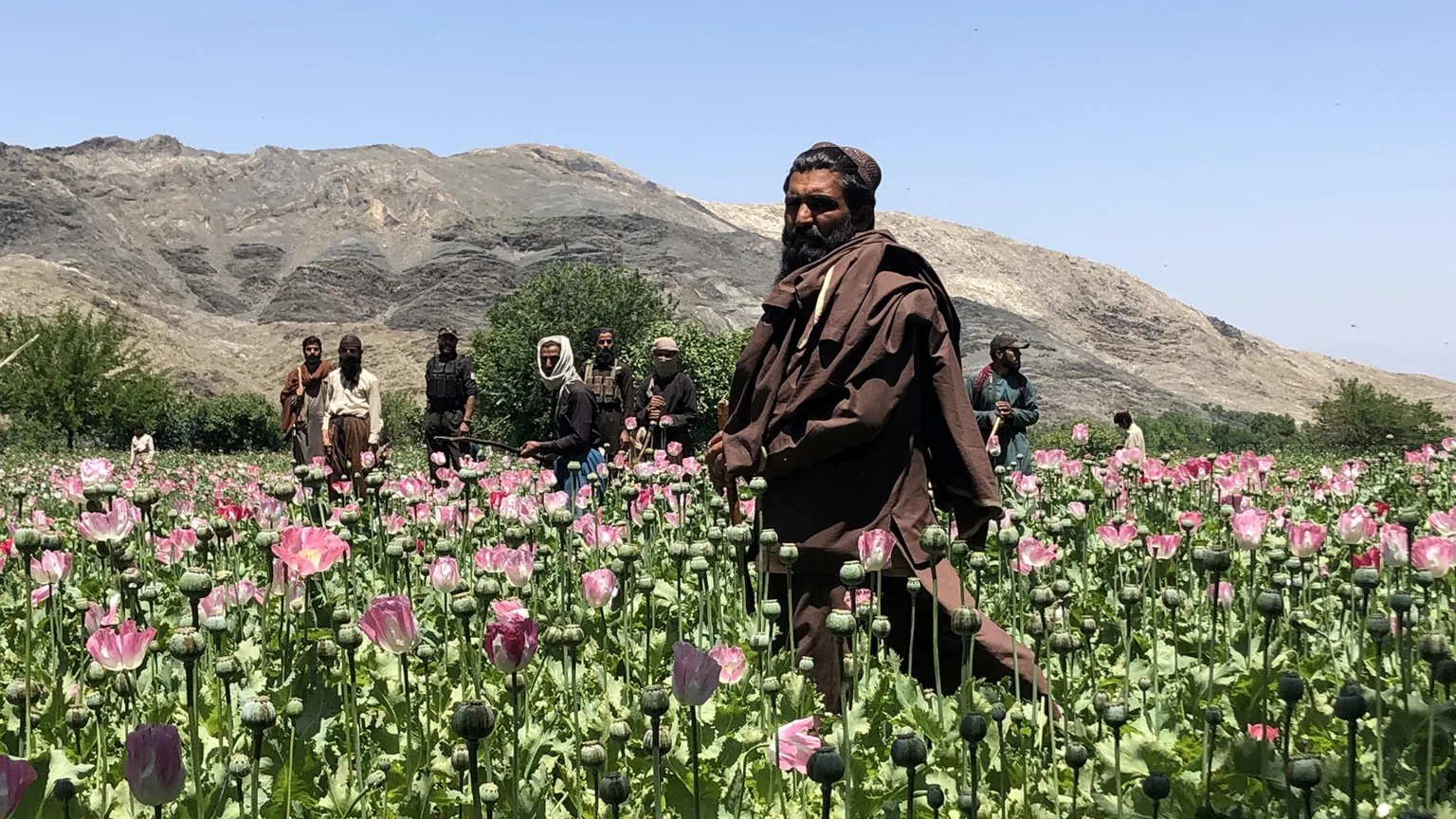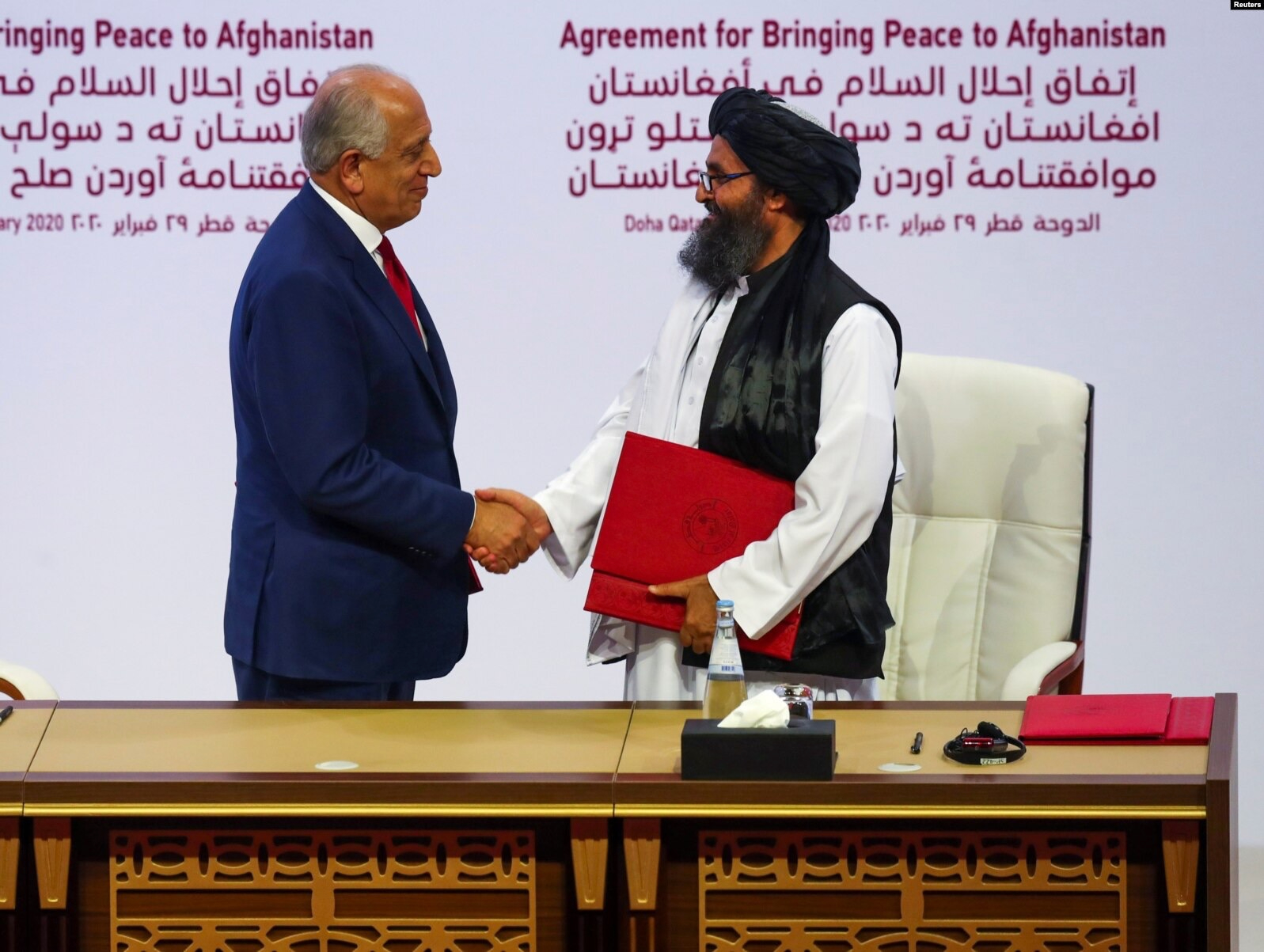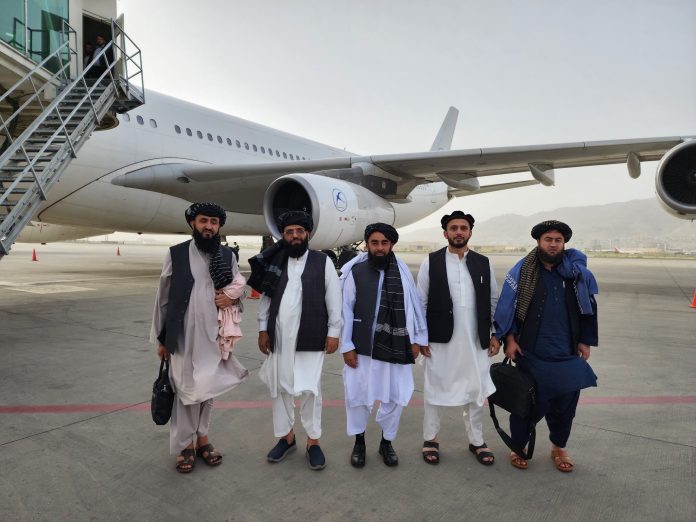Yesterday, the two-day Doha conference hosted by the United Nations (UN) concluded in Qatar, the first meeting with Taliban participation. Although an invitation was sent to the Taliban for the last Doha meeting in February, the Taliban failed to appear when it became clear that civil rights activists had also been invited. The Doha process was started by UN Secretary-General Antonio Guterres a year ago to create an international approach to dealing with the Taliban, although the first meeting excluded Taliban officials.
Despite the Taliban celebrating this month’s talks in Qatar, the UN has stressed that the invitation of the Taliban does not signify recognition. Meanwhile, criticism has erupted around the world given the exclusion of Afghan civil rights voices, particularly women, at the talks. In response, the Taliban has insisted women’s rights are an internal issue. Narcotics and economics have been the main subjects of discussion, but the Taliban held other meetings on the side. Here are the details from the past weekend in Doha:
Afghan Apartheid
Although the UN responded to criticism by promising that women’s rights would be raised at the recent talks, no reports have emerged of the issue being extensively pressed. UN Under-Secretary-General Rosemary DiCarlo claimed that the Taliban officials were told to include women in public life. But in Zabihullah Mujahid’s speech, the head of the Taliban’s delegation to the UN, the issue was not explicitly addressed. Instead, Zabihullah emphasized the need to separate “internal matters from foreign relations” and recognized the “policy differences” between Kabul and other governments. According to Pakistan’s Special Representative to Afghanistan, Asif Durrani, women’s rights were raised again during closed-door speeches, and the Taliban again responded similarly.
The talks come right after the Afghan Ministry of Education suspended the pay of all female employees on June 26th due to issues with the payment system and a lack of decision on the reduction of female employee salaries. In response, a strike was reportedly staged by female doctors on Saturday.

Nearly three years after regaining power in Afghanistan, the Taliban have created the world’s most serious women’s rights crisis. Under Taliban rule, women are barred from access to basic human rights such as education and employment and face political discrimination and increased threats of arbitrary detainment and physical violence. The country is ranked last on the Women, Peace, and Security Index, and the UN Special Rapporteur on the human rights situation in Afghanistan has referred to “the unprecedented deterioration of women’s rights.”
Today, delegates and representatives from the UN will reportedly meet with Afghan civil society activists, including women, without the presence of the Taliban. Although this was the only way to get the Taliban to attend the talks, critics have accused the international community of making unacceptable concessions.
Narcotics & Economics

The agenda for this session of the Doha Talks included discussing Afghanistan’s private-sector development and its fight against narcotics. The Taliban was anxious to address the sanctions imposed by the West. In his opening speech, Zabihullah argued that private development is hindered by the Central Bank of Afghanistan’s foreign reserves, which the West has frozen since 2021. The US alone froze $7 billion worth of funds after the Taliban took control of the government.
During the talks, the Taliban self-described their foreign policy as “economically oriented”––a policy that has brought connectivity to Afghanistan. They cited the Trans-Afghan Project, which seeks to connect Uzbekistan, Pakistan, and Afghanistan by rail.
The second half of the Doha meeting primarily discussed the fight against narcotics, with the UN delivering a speech expressing its danger to Afghanistan, and the Taliban responding by presenting evidence of increased numbers of demolished drug processing labs. The Kabul delegates argued that despite the ban on poppy cultivation, which was asked for by the international community, sanctions had not been lifted in response.
For both economic development and the fight against narcotics, the Taliban called on the international community for assistance and leveraged the primary concerns of the UN (i.e., humanitarian needs, civil rights, and drugs) to fight for freedom from economic repression.
International Ties––New & Old
The Taliban claimed on X that restrictions on banks have been lifted in response to the Doha talks, but the UN clarified today that no decision was reached by the organization on lifting banking restrictions. It’s unclear if any countries have acted privately.
Today's meeting is progressing very well, with most countries expressing support for Afghanistan's private sector. It was pledged that restrictions on banking and economic avenues should be lifted.
1/2— Zabihullah (..????????? ???? ? ) (@Zabehulah_M33) July 1, 2024
No sanctions have been lifted so far, either. But that might soon change: reportedly, the Russian envoy hinted at Moscow dropping sanctions against Afghanistan in the near future.
Recently, Kazakhstan removed the Taliban from its list of prohibited groups, and China famously recognized a Taliban ambassador earlier this year. Interaction between the Taliban and the international community continued in Qatar, where the Taliban held talks with representatives from the Netherlands, Kazakhstan, Indonesia, Saudi Arabia, India, Russia, and Uzbekistan on Saturday and Sunday night. Notably, Saudi Arabia expressed interest in reestablishing its embassy in Kabul. India has provided significant aid to Afghanistan in the past few years, and India’s attendance in Doha emphasizes India’s desire to rebuild its relationship with Afghanistan to the level of normalization it had before the fall of the Republic in 2021.
How Should the International Community Interact with Kabul?
According to the Taliban, all countries expressed support for the Islamic Emirate of Afghanistan. Even if that’s not true, the level of international involvement the Taliban experienced during the visit is noteworthy, despite the UN’s claim that their invitation doesn’t qualify for recognition. The countries already friendly to the Taliban, like China, Russia, and Central Asian countries, are likely to take the meeting as an opportunity to begin increasing bilateral trade. The Taliban probably mentioned the Trans-Afghan project in order to remind nations that the region is ripe with economic opportunities and alternative trade routes. If the Taliban can successfully petition the international community for assistance, then regardless of official recognition, Kabul appears to be more “open for business” than ever since 2021.

But is the liberal approach of integration into the international structure the way to interact with Kabul? More importantly, is it the most effective way to support the Afghan population? This is the problem that the West has struggled with for three years. Although the Taliban showed that it can diplomatically navigate cooperation, and although the Taliban framed a lack of international support as the reason for civil rights issues, the way this Doha conference itself was scheduled shows the distinction between Kabul and other governments at the table. Proponents of civil rights will only meet with UN representatives today, after the Doha talks have ended. The goal of the Doha talks might be to commit the Taliban-led Afghanistan to international law further down the line. Afghanistan, after all, became a member state of the UN in 1946. But critics of the Doha talks have accused the UN of violating its own charter, which necessitates the participation of represented groups, including women.
No matter the approach, the West needs to interact with Afghanistan to give it aid. Afghanistan received substantial amounts of it from Western countries in the past few days alone: USAID pledged $75 million to develop agriculture on Saturday, and the EU announced 98 tons of medical aid for Afghanistan on Sunday.
Retired Marine Corps General Kenneth “Frank” McKenzie, former commander of the US Central Command, called the Doha Agreement a mistake earlier this month, claiming the US treated it as an excuse to rapidly depart Afghanistan in 2021. In response, Taliban spokesman Zabihullah Mujahid rejected the proposition and claimed the agreement was victorious. The Doha Agreement was signed between the US and the Islamic Emirate in Qatar in early 2020 and addressed four issues: reducing violence, withdrawing foreign troops, starting intra-Afghan negotiations, and guaranteeing Afghanistan won’t again become a refuge for terrorists. It was the first step to a negotiated end to the 18-year war, but critics say that the agreement indicated to the Taliban that America was on a schedule to depart Afghanistan and “eager to leave at all costs,” according to the interview with General McKenzie.

